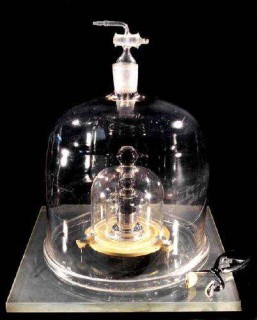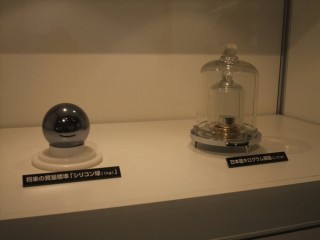▼ Japanese Research Team Set to Redefine The Kilogram for The First Time in 130 Years
- Category:Event
This weighty physics revolution might just change the way you look at numbers.
Whether it’s losing weight for cosplay or gaining muscle to impress that special someone, our lives sometimes revolve around mass. To the most of us, the humble kilogram is nothing more than a unit of measurement, but a recent scientific breakthrough may change its very definition.
Let’s take a step back into the 1875, when scientists were working fastidiously to better understand our world. In order to establish a standard of measuring weight with high precision, they created a cylindrical piece of metal made of platinum and iridium alloy, weighing exactly one kilogram. This was called the International Prototype Kilogram (IPK) and has become the definition of the kilogram we’ve all come to know.
Whether it’s losing weight for cosplay or gaining muscle to impress that special someone, our lives sometimes revolve around mass. To the most of us, the humble kilogram is nothing more than a unit of measurement, but a recent scientific breakthrough may change its very definition.
Let’s take a step back into the 1875, when scientists were working fastidiously to better understand our world. In order to establish a standard of measuring weight with high precision, they created a cylindrical piece of metal made of platinum and iridium alloy, weighing exactly one kilogram. This was called the International Prototype Kilogram (IPK) and has become the definition of the kilogram we’ve all come to know.
▼ The IPK is protected in layers upon layers of glass.
If you’ve failed physics before, you should blame this thing.
The IPK has been faithfully replicated and distributed to numerous countries so that their kilogram can be based off of those, but the original is housed in the International Bureau of Weights and Measurements in France.
Dust, contaminants, and countless other factors can change the IPK’s weight, causing each kilogram in the world to be off by a different amount. This may not matter much to the average person, but this inaccuracy can be a huge problem in sensitive research such as those involving radioactive materials.
In an effort to move away from defining the kilogram using an outdated chunk of metal and the inaccuracies that come with it, the National Institute of Advanced Industrial Science and Technology (AIST) in Japan has developed an ultra high-precision silicon ball that is currently the most spherical sphere on Earth.
Crafted using lasers and some fancy formulae, this new IPK has been tested to be twice as accurate as the cylindrical one, which would contribute tremendously to fields requiring precise measurements like drug development.
The IPK has been faithfully replicated and distributed to numerous countries so that their kilogram can be based off of those, but the original is housed in the International Bureau of Weights and Measurements in France.
Dust, contaminants, and countless other factors can change the IPK’s weight, causing each kilogram in the world to be off by a different amount. This may not matter much to the average person, but this inaccuracy can be a huge problem in sensitive research such as those involving radioactive materials.
In an effort to move away from defining the kilogram using an outdated chunk of metal and the inaccuracies that come with it, the National Institute of Advanced Industrial Science and Technology (AIST) in Japan has developed an ultra high-precision silicon ball that is currently the most spherical sphere on Earth.
Crafted using lasers and some fancy formulae, this new IPK has been tested to be twice as accurate as the cylindrical one, which would contribute tremendously to fields requiring precise measurements like drug development.
AIST hopes to present this new standard to an international conference next year, which would change the way the kilogram is defined for the first time in 130 years. While its benefits might not be apparent to most of us immediately, rest assured that our way of life involving kilograms would become… more accurate, which might help some Japanese women trying to achieve the weight of a fairytale princess.
- October 30, 2017
- Comment (0)
- Trackback(0)




